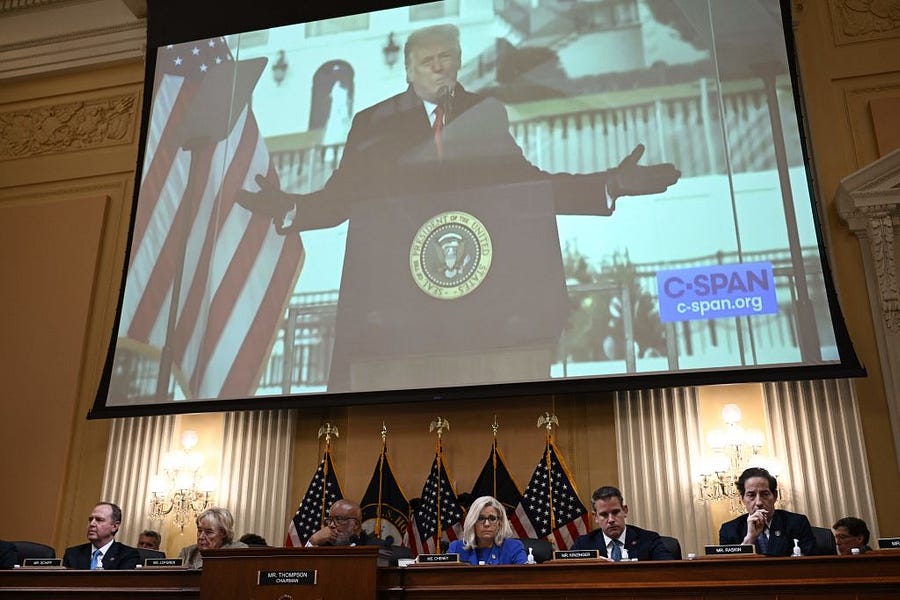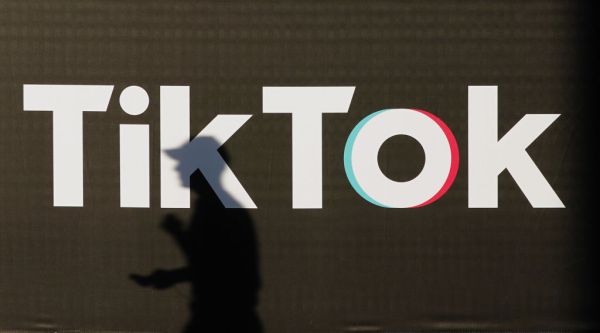Hello and happy Saturday. I have a confession to make. When I tell you what it is, you might wonder why I waited this long, or why I’m even bringing it up. I have a point, I promise. When the Cincinnati Bengals lost the Super Bowl in February—after unexpectedly winning the AFC North and then upsetting the Tennessee Titans and Kansas City Chiefs to get there, charming the Tristate along the way—I did not watch the highlights on SportsCenter or read stories about the game the next day. It was too disappointing.
It’s one thing to do that with sports. I didn’t need a deeper understanding of what happened—I watched the game–and I didn’t need to confront why I felt the way I did. It was a game, the Bengals lost, but it was still an immensely fun season.
But this week there were two big stories with important implications that made some media outlets play ostrich. On Wednesday, police arrested a man armed with a gun, ammunition, and tools that would facilitate a burglary near the Maryland home of Supreme Court Justice Brett Kavanaugh. The man was charged with attempted murder, and reportedly told the FBI that he was upset that Kavanaugh might vote to overturn Roe v. Wade and also strike down gun control legislation. That’s the kind of story that one expects would lead to multiple news alerts, nonstop cable news coverage, and A1 coverage in the newspaper. But as many on Twitter noted, the New York Times buried its initial coverage far down on the home page, and in print the next day put it on page A20. While the man did not get close to Kavanaugh and even turned himself in to police, there has been only one previous assassination attempt on a Supreme Court justice, and that was in 1889. It’s a big deal.
Meanwhile, the House select committee investigating the events of January 6 conducted a televised hearing in prime time this week. Prime time hearings are somewhat unprecedented, as Jonah noted in his Wednesday G-File, and some skeptics worried that Democrats would use the hearings for partisan purposes, but there is no doubt the hearing was newsworthy. Well, no doubt for any outlet except Fox News. The network chose not to preempt any of its prime time opinion lineup to air the hearings.
I write this not to equate the two events, though that would be a somewhat different calculation had the man arrested in the attempt on Kavanaugh gotten close to him or, horrifically, gone through with his plans. I bring them up because the way they were treated is just another sign of our unhealthy politics and discourse. Conservatives have been complaining about media bias for decades, and liberals have been complaining about Fox News since its inception. But this goes beyond bias into something more like a refusal to deal with reality.
Sometimes, the news makes us uncomfortable. People on “our side” (whichever side that is) do bad things. When that happens, one common reaction is “whataboutism”—the other side does it, too, or the other side is worse. That’s lazy. But to deliberately downplay a news event, as the New York Times did, or ignore it as Fox News did (well, except for Tucker Carlson, who railed against the hearing on his show), is more nefarious. Outlets like the New York Times and Fox News set the agenda for our national conversations. They owe it to the public to cover the news as it is, not as they would like to be.
On the bright side, we covered both of those events this week at The Dispatch. We also touched on our culture of violence, debates over gun control, Ukraine, and the recall of San Francisco District Attorney Chesa Boudin. Thanks for reading, and we promise to keep our eye on the ball.
Mass shootings bring out hyperpartisan talking points, with gun control supporters advocating for restrictions and gun-rights supporters pushing back by saying they don’t work. And we see them making those arguments with cherry-picked statistics that reinforce their side. All of this ignores the real problem, David argues: America has a violence problem. Our non-gun homicide rates are greater than the total homicide rates of nearly every country in Europe. “Understanding America’s true cultural problem allows us to refocus our efforts to address gun deaths away from the simplistic (fewer guns!) to the more rigorous (a multifront effort to both keep guns out of the hands of dangerous people and to confront head-on a centuries-old culture of extraordinary criminal violence.) That’s why we can’t roll our eyes at efforts to rebuild families or reform America’s mental health system as ‘distractions’ from the ‘real’ fight against gun rights.”
Speaking of guns … Audrey reports from the Hill, where there is a bipartisan effort to introduce pragmatic gun control legislation and Sen. John Cornyn is the lead negotiator for Republicans. Senators like Elizabeth Warren have expressed concern over Cornyn’s A+ rating from the NRA, but the reality is that sweeping and progressive measures have no chance in the evenly divided Senate. “This time around, Cornyn hopes he can meet the filibuster’s 60-vote threshold by keeping the focus on narrow issues like school safety, mental health, and potentially incorporating juvenile criminal records in the FBI’s background checks process,” Audrey writes.
The arrest of a California man near Kavanaugh’s home this week was only the most high-profile threat against a pro-lifer in the wake of the leaked Dobbs opinion. But it’s hardly been the only one. Isaac Willour details an attack on the Capitol HIll Crisis Pregnancy Center, the Madison office of Wisconsin Family Action, and the firebombing of a Christian pregnancy center in Buffalo. Jane’s Revenge, an abortion righs advocacy group, claimed responsibility for the D.C. and Wisconsin attacks. He also talks to college pro-life activists about the challenges they have faced on campus, including having to hire security. Isaac spoke to the CEO of CompassCare, the Buffalo center. “Because of this act of violence, the needs of women facing unplanned pregnancy will go unmet and babies will die,” CompassCare CEO Jim Harden said.
Russia’s blockade of Ukraine’s southern ports has garnered a great deal of attention, but it’s not the only assault Russia is making against Ukraine’s wheat industry. Russian forces also launched airstrikes against a Kyiv factory that works on grain-industry transport cars and a grain storage facility in Mykolayiv last weekend. Such strikes not only hurt Ukraine economically, they threaten to make a looming global food crisis worse. Andrew Fink notes that the blockade itself “effectively removed 20 percent of the world’s expected wheat exports from the market.” Meanwhile, Russia is benefiting itself, as its wheat exports are up and its looting Ukrainian grain as well. “When there is hunger and social instability in poorer countries this year and next Russian propagandists will blame sanctions, or even say that if the West really cared about food prices it would force Ukraine to surrender or at least stop giving Ukraine the weapons it needs to hold out,” he writes.
And now the best of the rest:
-
James Sutton reports from San Francisco on the recall of progressive District Attorney Chesa Boudin. He delves into what it means for the criminal justice reform movement and the growing influence of Asian American voters.
-
The recent mass shootings have reignited the debate over gun control, and that has Sarah thinking about issue polling. In The Sweep, she explains why issues like gun control and abortion don’t affect elections as much as one might think.
-
A confluence of events has brought more bad news for Biden’s hopes of signing a new nuclear deal with Iran (not that there has been much “good news” during his administration). Danielle Pletka discusses how the IAEA passed a resolution condemning Iran’s failure to disclose information about nuclear activity, and a non-binding resolution that the U.S. Senate “demanding that any nuclear agreement address Tehran-sponsored terrorism and opposing sanctions relief“ on the IRGC.
-
What a difference a year makes. Last year, protectionists and fans of industrial policy were praising China and criticizing the U.S. Now the U.S economy is back to pre-pandemic levels (not ignoring inflation!) and China is struggling. In Capitolism, Scott Lincicome explains what’s going on.
-
On Tuesday, Rep. Liz Cheney joined our members-only Dispatch Live event to preview the January 6 hearings. We’ve made the video of her discussion with Steve and David available to all.
-
It was a great week on the pods: David and Sarah discuss the Kavanaugh incident and the danger of doxxing judges on Advisory Opinions. For some lighter fare, check out Jonah’s conversation with his friend and fan favorite guest Rep. Mike Gallagher on The Remnant. The gang reviews the first January 6 prime time hearing on The Dispatch Podcast. And on Good Faith, David and co-host Curtis Chang welcome Russell Moore to discuss the problems of the Southern Baptist Convention.







Please note that we at The Dispatch hold ourselves, our work, and our commenters to a higher standard than other places on the internet. We welcome comments that foster genuine debate or discussion—including comments critical of us or our work—but responses that include ad hominem attacks on fellow Dispatch members or are intended to stoke fear and anger may be moderated.
With your membership, you only have the ability to comment on The Morning Dispatch articles. Consider upgrading to join the conversation everywhere.